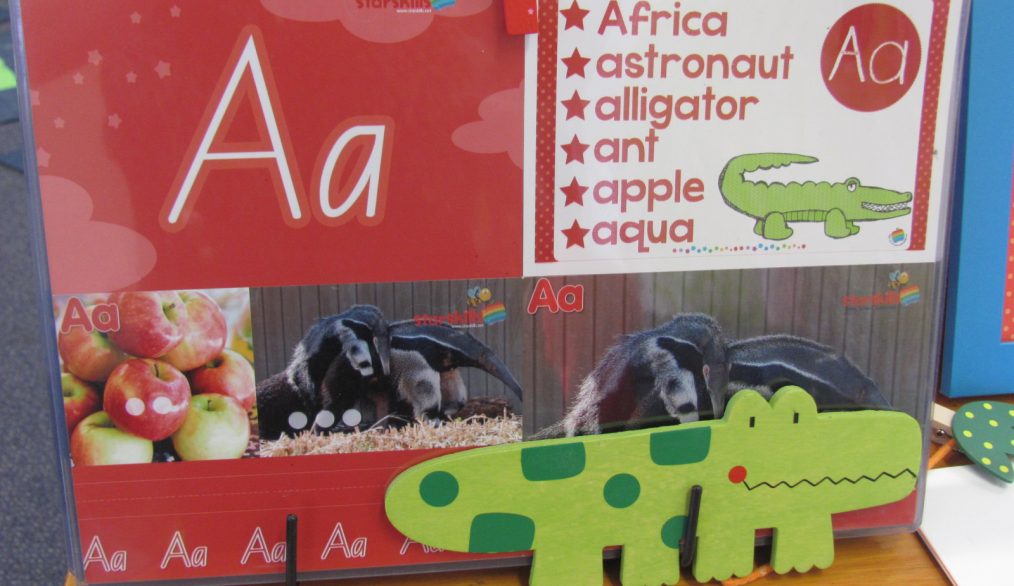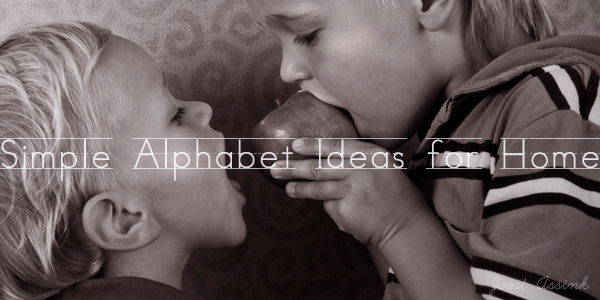
Simple Ways to Help Your Child Learn the Alphabet at Home
Research shows that when children can easily recognize letters, they will have more success reading. Here are a few ways that you can help your child at home.

- Write your child’s name in many places around your home– on a backpack, a sign on the bedroom door, and on artwork they create.
- Name each letter out loud as you write it to help your child learn the letters of his/her name.
- Encourage your child to play pretend with written materials such as menus, tickets, lists, notes, magazines, etc.
- Read alphabet books with your child and point to the letters on each page.
- Ask the librarian at the library to show you where these books are located. There is also a list of alphabet books included at the bottom of this page.
- Using play‐dough is a fun way for your child to practice the letters in his or her name and the letters of the alphabet.
- Making play‐dough at home with your child’s help is fun and educational!
- Put shaving cream on a tray and encourage your child to use their fingers to write their name and letters.
- Encourage your child to play with magnetic letters on a metal cookie tray, refrigerator, or other flat metal surface.
- Encourage your child to play with foam letters in the bathtub.
- Encourage your child to draw letters or their name on the pavement with chalk.
- Give your child opportunities to use markers, pencils, crayons, pens and paint to draw and write names and letters.
- When buying your child toys to play with, remember that you are really purchasing teaching tools. Books, puzzles, magnetic letters, and toys that emphasize literacy and language development are the most valuable “gifts” you can give your child.
- When you are out doing errands around town draw your child’s attention to letters and words in the environment (signs, cereal boxes, newspapers and magazines, menus, etc.)
- ave your child trace letters on/in different surfaces such as sand, rice, or textured cloth, etc.) Say the name of the letter with your child as they form the letter.
- Provide your child with different materials such as macaroni, pipe cleaners, play dough, etc. and encourage him to create letters with these materials. Ask your child to tell you what letter he or she made.
- Make a letter for tracing. Write one letter on large paper. Trace the letter with glue; then sprinkle the letter with sand, salt, or powdered J-ello. When dry, have your child trace the letter with his/her finger and say the name of the letter. This could also be done with your child’s name.
- Write one letter on a large sheet of paper. Have your child rainbow write the letter by tracing over it with four or more colors using crayons or markers.
- Give your child a highlighter or marker and name a letter, then ask your child to find as many of that particular letter as possible in a magazine or newspaper and highlight or circle the letters.
Start early at home and reap the benefits later down the track with confidence and accelerated learning!
